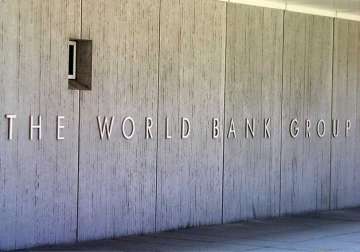Washington: Buoyed by the economic reform measures taken by the Indian government after coming to power in May last year, the World Bank has said that India would catch up with China's growth in the year 2016-17.
"According to our analysis, India will catch up with China's growth in the year 2016 and 2017," World Bank Chief Economist and Senior Vice-President Kaushik Basu told reporters.
He was speaking yesterday at a conference call as the bank released the latest issue 'Global Outlook: Disappointments, Divergences, and Expectations Global Economic Prospects,' report.
"China's growth will remain high, but will begin to taper very gently, reaching 6.9 per cent in 2017," Basu said. The World Bank in its report also forecast a growth rate of seven per cent each in the fiscal year 2016 and 2017 as against China's 7 per cent and 6.9 per cent respectively.
This would be for the first time in recent past that India's growth rate would catch up with that of the Asian giant China.
The World Bank estimated a growth rate of 5.6 per cent in 2014 and has forecast a growth rate of 6.4 percent in 2015, while that of China as 7.4 (estimated) in 2014 and 7.1 per cent (forecast) in 2015.
In its report the Bank said growth in South Asia rose to an estimated 5.5 per cent in 2014 from a 10-year low of 4.9 percent in 2013.
"The upturn was driven by India, the region's largest economy, which emerged from two years of modest growth," it said.
Regional growth is projected to rise to 6.8 per cent by 2017, as reforms ease supply constraints in India, political tensions subside in Pakistan, remittances remain robust in Bangladesh and Nepal, and demand for the region's exports firms, it said.
"Past adjustments have reduced vulnerability to financial market volatility. Risks are mainly domestic and of a political nature. Sustaining the pace of reform and maintaining political stability are key to maintaining the recent growth momentum," the report said.
Latest Business News
